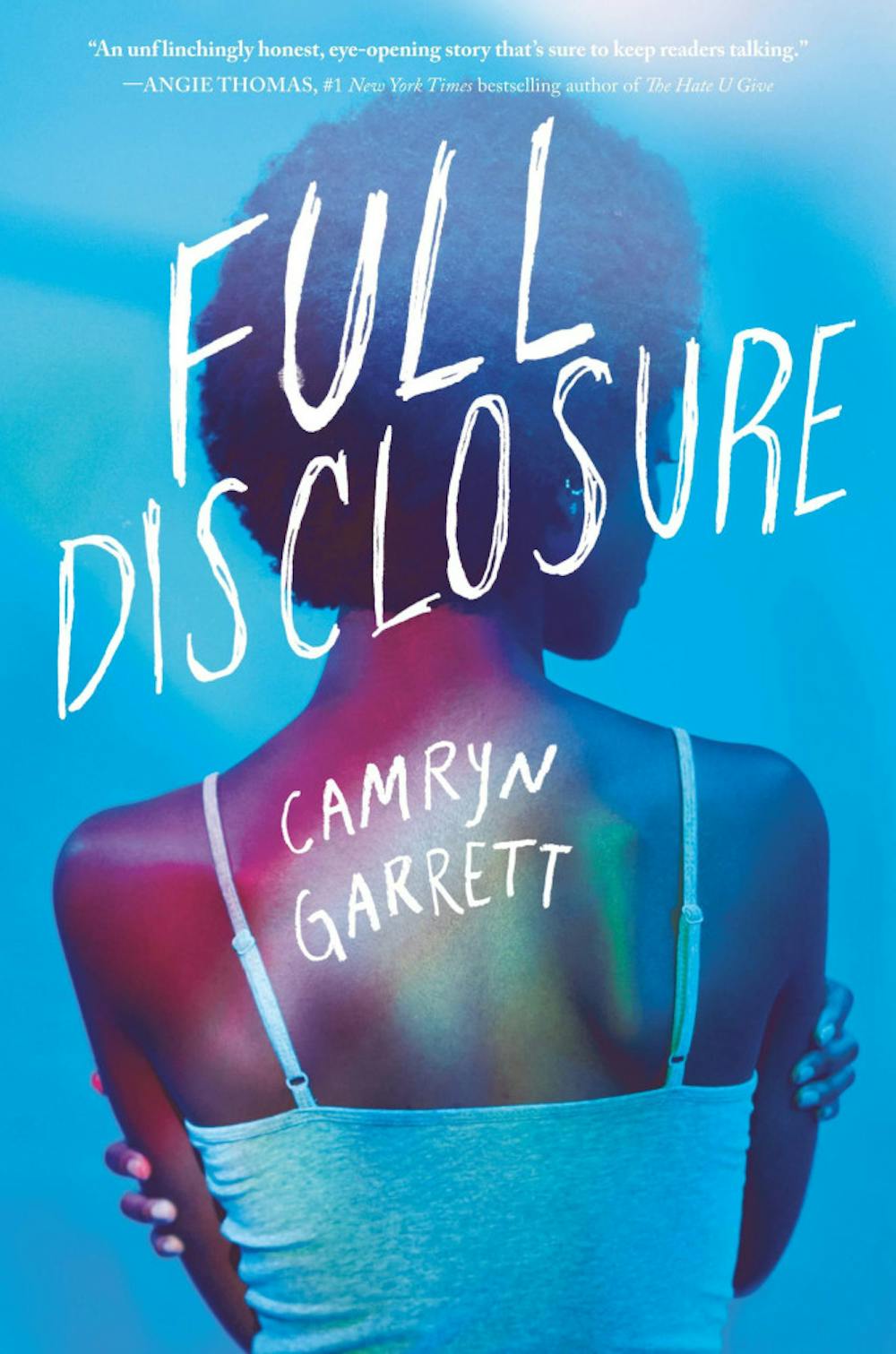When I first started reading this book, I was expecting it to be a little hokey and cheesy, another stereotypical young adult novel. While there was definitely some of that general corny feeling in there, there was also so much information and representation throughout the pages that I barely noticed the corniness.
“Full Disclosure” by Camryn Garrett follows Simone Garcia-Hampton, a 17-year-old adopted black girl, starting over at a new school after something or someone drove her out of her last one. While she worries about what every teenager worries about (boys, friendships, parents, sex, etc.) she also worries about her HIV positive status that she was born with. Her dads, who have always been a source of support, want her to be abstinent but as she grows and develops deeper relationships at her new school (especially with her oh-so-cute crush, Miles) sex becomes more of a reality than a concept. As Simone puts it, “according to the extremely reliable resource of internet porn, all kinds of situations can lead to sex: making salad, tutoring, playing soccer…” Simone has to figure out how to tell Miles about her status while also keeping her new friends and the rest of the school from finding out.
While this book’s main plot point was Simone’s HIV status, so many other subjects were touched on, especially when it came to sexuality. Throughout the book, we see Simone questioning who or what she likes, and her two closest friends are an asexual lesbian and a bisexual girl. These friends help Simone work through questions she doesn’t quite understand, even if they were a bit harsh at times. While her status is a big part of her life, it’s only one part of who Simone is on top of being a theater-loving, curious teenager. I personally loved that Simone had a very healthy relationship with her parents; she was open with them, she was embarrassed by them, she joked with them, she got angry at them, but this was more “typical-teenage” behavior than her rebelling against her parents in any serious way. With YA novels it can be easy for authors to rely on a bad home life as a plot point, so it was refreshing to see this dynamic.
Garret approaches these sensitive subjects with humor and armed with information and I often caught myself thinking "wait, I never knew that," despite all the classes I’ve taken here at UNH about sex and sexuality. You can tell right from the start how much research and thought Garrett put into this.
At the end of the book, Garrett includes resources for those who want to learn more about HIV and AIDS, including the fictional movies, articles, books, activists, and websites that helped her with her own research. On top of all this, Garrett was only 17 when she first sold this book and started thinking about this topic after learning a little bit in her health class. Since she was a teenager when she wrote this, it gives the voice of these teenage characters more authenticity than if a middle-aged person were writing a YA novel — not that it can’t be done, but sometimes it’s forced.
This is a great book for those who like YA or contemporary fiction or just need a short read (my copy was just shy of 300 pages, not counting all the resources at the end).














